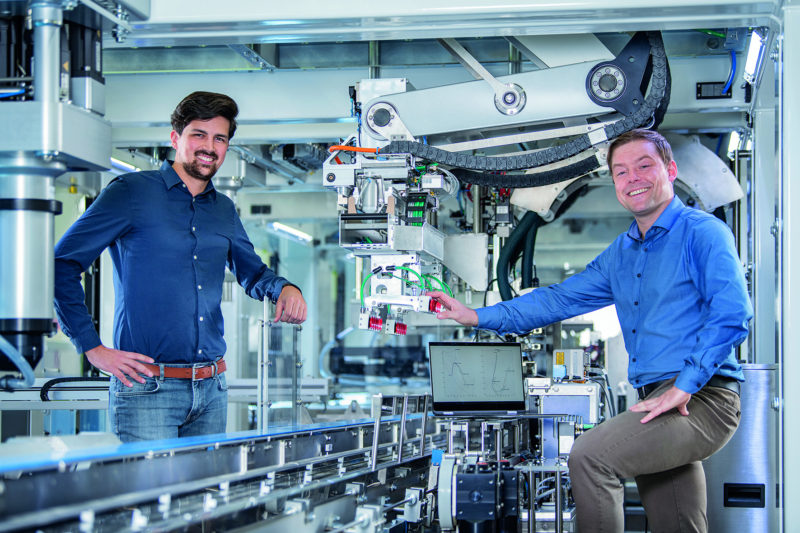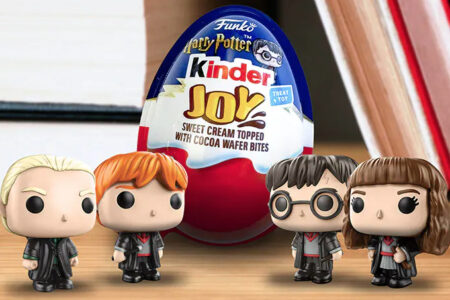Gerhard Schubert unveils AI robotics packaging developments at Fachpack event

The Gerhard Schubert group unveiled its latest motion technology robots designed for packaging machinery at the Fachpack trade fair in Germany, reports Neill Barston.
As the Crailsheim business explained, its software is based on the use of artificial intelligence (AI), optimising the movements of the robot arms in terms of speed, while reducing vibrations.
At the customer’s machine, a combination of a flow-wrapper and a cartoner, the F2 robots demonstrated the increased performance potential in the real packaging process live at the exhibition stand.
The company also took the opportunity at Fachpack to display its Lighlight cartonpacker equipment line, which has targeted key markets including confectionery manufacturers. Its development, and wider plans for the business were discussed in a previous video exclusive with Confectionery Production.
For the packaging machine manufacturer, Schubert Motion represents a decisive step towards a new type of robot programming. Until now, movements had to be parameterised in a complex manner and manually tuned on the machine. “With the new software, a large part of this effort is eliminated. The robots run almost automatically at high performance levels, and products and processes can be focused on immediately,” explains department head Michael Döring.
Robots have until now been programmed to travel the shortest possible straight paths. This is not the best solution from a physical point of view, however, because the mechanical loads on arms and joints are increased by abrupt acceleration and braking manoeuvres.
A slightly curved track, on the other hand, allows for smoother changes in speed and therefore, paradoxically, faster processes. A further advantage is that the more organic movements reduce vibrations on the robot and in the machine, as this is also part of the development work.
The entire system is therefore subjected to less stress, which benefits process accuracy, product protection and system longevity – promising considerable advantages for Schubert customers.
Michael Döring explains: “In the future, with our software we will be able to specifically address individual causes of vibration, such as soft floors, and still produce quickly.” A single figure highlights the advantage the new programming with Schubert Motion delivers: With optimum control, the same robot can work on average around 20 per cent faster – without manual readjustment. Thanks to the Schubert Motion software, packaging machines can be operated at significantly higher cycle rates, enabling manufacturers to efficiently increase their production.
In addition to robot optimisation, Michael Döring’s team in Dresden now wants to drive forward the topics of predictive maintenance and simulation. The expansion of the Dresden site is therefore making progress. The environment at Schubert Motion is excellent for interested developers and pioneering digital innovations in the field of robotics: impressive technology, a new office close to the Technical University of Dresden and, last but certainly not least, a highly qualified and committed team




Schubert’s new solutions use AI to improve the accuracy, efficiency, and flexibility of packaging operations. For example, Schubert’s AI-powered vision system can identify and sort confectionery products with high accuracy, even if they are damaged or deformed. This can help to reduce waste and ensure that products are packaged correctly.